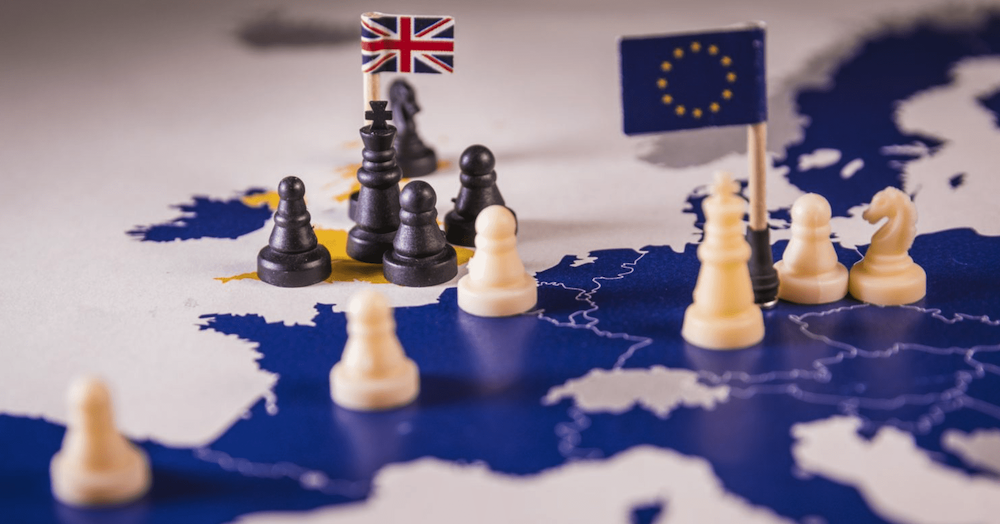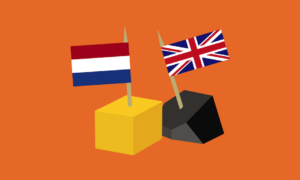When we started 2020 fresh with a new Brexit buzz feature, we couldn’t have known the United Kingdom’s exit from the European Union would be forgotten (briefly) amid the panic of a global pandemic.
But ladies and gentlemen, we have a deal and this is the final update.
Yes, the UK left the European Union on 31 January 2019 after more than three years of wrangling and drama. But if you think the Brexit drama is done, we’ve got a few insights as to where this is headed after 31 December. And yes, it’s time for a new post-Brexit post. Stay tuned.
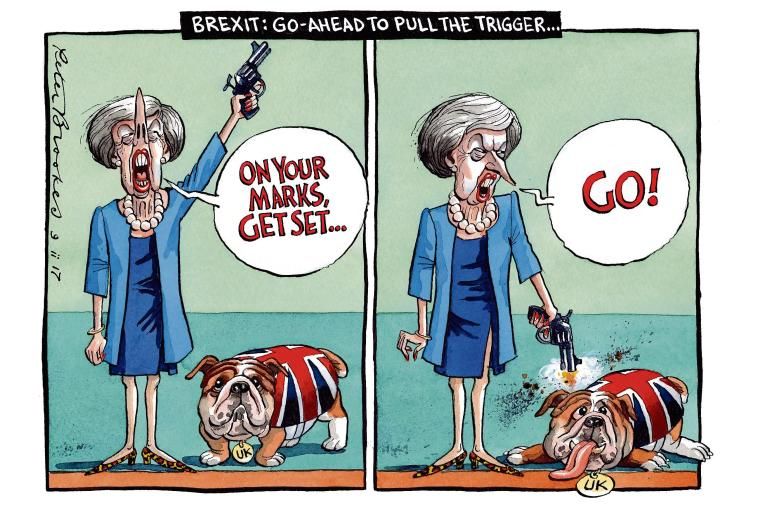
Okay, here we go, kids ….
• As we’ve said before, the EU gave Boris the fish, but kept the gold. And were not the only ones who think Johnson and the Brexiteers lost the war, then declared victory.
Politico has a detailed post, “Five reasons the UK failed in Brexit talks,” going point-by-point as to why the UK comes away at best with a Pyrrhic victory including:
- The UK fought and lost over fishing, “which represents 0.1 percent of our economy, while accepting that services, which represents 80 percent of our economy and where we have a competitive advantage, is excluded from the agreement.”
- Boris & Co. were busy selling the idea the UK and the EU are “sovereign equals” when the UK has 67 million people and the EU 500 million. Not to mention the fact that the EU includes three of the 10-largest economies in the world – Germany, France and Italy. The EU is – and will remain – the much more powerful entity … and is now an economic rival with a grudge.
- The UK wasted future negotiating capital with feints of arbitrarily backing out of agreements it already had with the EU in violation of international law.
Because the EU has an actual negotiating strategy and far more leverage, the author of the post, Jonathan Powell, concludes by stating, “Unsurprisingly, the agreement ended up being mostly what the EU wanted.”
• After the trade deal with the European Union was revealed, Britain’s Eurosceptic media that did so much to inflame Leave voters were surprisingly subdued about the 660 billion pound free-trade agreement. The to the right of Attila the Hun Express complains the deal leaves the UK too closely tied to the EU, with a post dedicated to Boris Johnson’s “four blunders,” which include ceding too much to the EU on fishing.
Ironically, Keir Starmer supports the deal, and with Labour’s votes it will likely pass. Although in more than four years, we’ve not seen anything related to Brexit go the way anyone thought it would go.
More objective sources including the New York Times think the EU won, giving the UK a favorable trade deal on goods … but one that does not extend to the far more lucrative services sector. The Financial Times just posted two less than positive stories, one noting that Brits won’t even know what market rights UK-based financial firms will have in the EU until after 1 January! Then, it gets complicated because it comes down to “equivalency” – how closely the British regulations align with Brussels’. The upshot is Boris kept the fish, but just gave away about 80 percent of Britain’s economy.
• So, it’s come to this. It’s the last minute and the United Kingdom is dealing both with Brexit and a pandemic panic, with Tier 4 lockdown for London. And Boris Johnson is prepared for neither.
The Commons’ Brexit Select Committee, led by Hilary Benn, has stated the UK is looking at a situation where all of the worst-case Brexit scenarios (see Project Fear) come to fruition including blocked ports and all the EU nationals who work at UK care homes being shown the door on 1 January.
Even the right-wing Daily Mail has a sensational (in every sense of the word) post titled: “Mass exodus likened to the ‘last train from Saigon’ sees desperate families flee London ahead of Tier 4 misery – as PM’s critics mockingly congratulate him for causing the city’s ‘first evacuation since 1939’ ” The post includes (probably apocryphal) accounts of people hiring cabs to drive 200 miles to Liverpool to get out of London, which is shut down. The Tier 4 designation comes as scientists have identified a COVID-19 mutation that is more contagious than earlier strains.
Okay, that Daily Mail headline used up all the characters for this installment. But God only knows what’s coming. But Tory MPs are standing by to vote down any deal should Boris budge and give into EU demands that France keeps fishing rights to British waters. And on the EU side, Michel Barnier is catching heat from EU countries including France and the Netherlands warning him not to give in to the Brits.
• The pain begins.
British ports and roads are choked with thousands of trucks as retailers anticipate a no-deal Brexit by stocking up. Even IKEA is complaining that it running out of inventory at Christmas, with its furnishings and home accessories stalled in a pandemic just at the time everyone seems to be redecorating.
Yet to be seen is whether the long-predicted food shortages – dismissed as Project Fear by Brexiteers – materialize. The United Kingdom imports about 30 percent of its food from European Union countries such as Spain and Italy.
The Mirror has a good overview of what’s coming 1 January 2021 including this bit from Mark Jones, partner at law firm Gordons:
“Right now, the average person in the UK spends around 8.2 percent of their annual income on food, which is the third lowest in the world. If that number creeps up to 10 percent, the average person will be spending an additional 490 pounds on food per year, or approximately 40 pounds per month.
“With around 8.4 million people in food poverty in the UK, a no-deal Brexit could push millions more into food poverty.”
Making Britain great again ….
• We’ve arrived at the logical endgame that Nigel Farrage, Jacob Rees-Mogg and the rest of the Brexiteers once could only fantasize about – armed ships of Her Majesty’s Navy ready to battle boats from Europe. Sky News is reporting four, 80-meter-long warships will intercept and board foreign vessels and arrest fishermen if no deal is reached on Sunday.
Fishing is one of the main sticking points as the French argue they should still be entitled to enter UK fisheries in the North Sea. The whole point of the European Union is to ensure peace in Europe through trade, and now we have the distinct possibility of England and France going to war over cod.
This has to have Robert Schuman rolling over in his grave.
• Boy, you know things aren’t going well when the European Union issues Brexit contingency plans even before the deal is dead. But they did, and they include proposals to keep planes flying and roads open for the next six months deal, or no deal.
• You can’t say the Brexiteers don’t have a sense of humor. Industrialist Sir Jim Ratcliffe, the UK’s richest man (well, he used to be before he left), donated generously to the Brexit campaign and preached good old-fashioned Rule Britannia and rugged go-it-alone individualism as Brits went to the polls in 2016.
“The Brits are perfectly capable of managing the Brits and don’t need Brussels telling them how to manage things,” the Financial Times quoted Ratcliffe saying in 2015. “I just don’t believe in the concept of a United States of Europe. It’s not viable.” What he apparently does believe is that Europe has a future, unlike the UK. At least not one that includes him.
Brexit passed and Ratcliffe moved to Monaco, which is integrated into the EU via its protector, France. Now, he’s announced he’s moving production of the definitive British car, the Land Rover, to a former Mercedes factory in France.
Ratcliffe joins fellow Brexiteer billionaire James Dyson in getting out while the getting’s good. Again, you can’t make this shit up.
• As with his pandemic approach, Boris Johnson is uniting the left, center and right in the conviction his Brexit preparations – or lack of – are an historic failure. On the right, the Daily Mail has possibly the longest headline in history, “UK is STILL not ready for Brexit with just four weeks until transition period ends… as experts warn of a ‘risk of serious disruption and delay at borders.”
The post, written by John Stevens, deputy political director, quotes a haulage association executive as saying the outlook for 1 January is somewhere between “shambolic and disastrous.” We looked up “shambolic,” and if that’s the best-case scenario, the UK is in trouble.
On the left, the Independent headlines about what’s coming with Brexit – deal or no-deal – tend to vacillate between “catastrophe” and “disaster.” In the center, Sky News has a post about “serious disruptions” at the ports of entry.
This is going to be fun ….
• We’ve been waiting for that final “we have a deal!” announcement, but it’s never come. Now with one month to go, both parties are focusing more no-deal plans as we reach yet another “make-or-break” round of talks. Should the United Kingdom leave the European Union without a trade deal, things will get very interesting, very fast.
As Donald Rumsfeld so eloquently said, “There are known knowns, known unknowns, and unknown unknowns.” In 2020, those unknown unknowns, like how people in Northern Ireland are going to get food, are about to make themselves known in most unpleasant ways in the event the UK leaves with nothing.
British officials, with no real preparation for newly required customs checks, are buying up old airports to use as truck assembly points to deal with the thousands of trucks Michael Gove is warning will clog England’s and Northern Ireland’s ports of entry for EU goods. This is, of course, the same Michael Gove who said in 2016, “We have four years more or less between now and date of next election. We can easily conclude a new settlement with EU in that period.”
This uncertainty is even trickling down into film production, with producers of a new film about Princess Diana telling British actors with those fabulous new blue British passports not to bother to audition.
To be fair, the UK has signed separate trade agreements with Switzerland, Japan and South Korea worth billions. But so far, Blighty hasn’t managed to sign a trade agreement with eight out of its Top-10 trading partners because they’re all in the EU.
• Could it be? Major media outlets including Sky News are reporting a Brexit deal is “95-percent done.” However, EU Secretary General Ilze Juhansone cautions that problems still remained in three areas – fisheries, governance and competition rules – that have been among the main sticking points along with Ireland’s border.
Any deals still have to voted on by the EU and by Britain’s parliament. We wondered when Boris kicked Dominic Cummings to the curb in mid-November whether that was a sign the no-deal Brexit faction had lost, apparently after crossing Johnson’s fiance, Carrie Symonds, in a row over Lee Cain, who’s also gone. Please, God, don’t ask us to to explain this … but if you must know the gritty details, you can see them here.
• The reporting about a trade deal took an optimistic turn in late October. Unless you read Bloomberg, which is reporting one man – but an influential one in Boris Johnson’s orbit – wanted to push United Kingdom into a no-deal exit.
The Bloomberg post states that Dominic Cummings encouraged Johnson to leave talks with EU officials without a deal.
From the post:
Failure to reach a deal, which would include arrangements for trade, security, fishing, energy and transport cooperation, would lead to a severe rupture that could damage U.K.’s relations with the EU for years. Yet among Johnson’s group of Cummings-approved advisers, some see the attraction of a clean break and the political freedom it would bring.
The post goes on to describe Cummings as a “puppet master” and, in Shakespearean terms, Banquo’s ghost haunting the banquet in “Macbeth.” Of course, now he’s gone, isn’t that a sign a deal is coming?
• So, will there be a hard Brexit, or is a deal coming? After four years – and with two months and two weeks to go – nothing is settled after the “easiest negotiations in history.” In a video released 17 October, Prime Minister Boris Johnson warned Brits to ready for a no-deal come 1 January 2021. One can assume that if 1 January were going to bring the rainbows and unicorns Brexiteers promised, the British leader wouldn’t be using the word “warn.”
There are no meetings scheduled and European officials are telling the media they willing to give it three more weeks, and that’s it. During this transition period, not much got done because the UK remained for all practical purposes an EU member state and life was normal. As of 1 January, a lot of Brits are going to be in for a shock, with changes ranging from clogged autoroutes to giant truck parking areas springing up near ports of entry, which will become Britain’s defacto border with the EU. Going the other way, British officials expect trucks might have to wait up to two days to cross from the UK to Europe — a major delay for just-in-time manufacturers.
All the trade rules change and EU officials can arbitrarily and capriciously change the changes. This will hit at a time when the UK is struggling to figure out how to cope with the coronavirus pandemic and looking at their erstwhile ally Donald Trump leaving the White House.
All this aligns with warnings that Brexit would be a disaster – what Michael Gove, Theresa May and other Brexiteers dismissed as “Project Fear.” Except the reality promises to be far worse than the predictions all those years ago.
• The Associated Press is reporting that European Union official negotiating with the United Kingdom say no-deal is becoming “more likely by the day.” If this whole political leader thing doesn’t work out for Boris Johnson, he can always write a book. We’d suggest, “How I Wasted a Year Not Negotiating with the EU,” for the title.
Boris & Co. have until 26 November to finalize agreements on an EU/UK trade deal including trade, the Ireland/Northern Ireland border, immigration, fishing, university research programs, security and intelligence, environmental protection rules and data sharing & communications.
All that has to get done in less than two months because as far as anyone knows, there has been no progress on any of those issues. Instead, Johnson and his Tory government has focused on reneging on the original separation agreement on the way to a painful departure from the EU with no agreements. Which the Johnson government has acknowledged internally.
The Express, of all outlets, has a revealing and surprisingly non-partisan post about English officials keeping their Scotch, Northern Irish and Welsh counterparts in the dark about the true impact of a no-deal Brexit including food shortages.
• Nietzsche once said that which does not kill you makes you stronger. Well, the loss of London as the EU’s financial center will be painful but not fatal as it spurs normally somnambulant EU officials to start bulking up financial markets on the Continent.
In “Brexit and the City: Brussels’ new battle to rival London in finance,” Financial Times has an incredibly readable, balanced explanation of what it will take for Frankfurt, Luxembourg City and Amsterdam to replicate The City’s massive capital and transactional capacity.
With Boris Johnson’s attempt to re-write the Withdrawal Agreement, EU officials are increasingly resolved to not to rely solely on London, which handles a whopping 33-percent of all the capital-markets activity in Europe!
From that post:
The deteriorating state of relations with the UK in recent weeks has only strengthened the argument for the EU to stand on its own two feet, officials say. The UK’s decision to breach international law in its dealings with Brussels further erodes the EU’s willingness to offer financial market access — or “equivalence” as it is known — to the UK in a range of key sectors. “We cannot afford to be the only large economic bloc in the world which has an under-developed financial sector,” says a senior European Commission official.
Europe has multiple financial centers – Dublin, Frankfurt, Amsterdam, Paris and Luxembourg City – and a fragmented financial-services ecosystem. A single market needs a single financial center … which itself will set off another round of wrangling.
• When analysts and business leaders pointed out back in 2017 that a hard Brexit would completely disrupt the UK’s supply train, Michael Gove was the first to label that factual, clear-eyed assessment as “Project Fear,” propaganda meant to shake Britons’ resolve to break free from EU tyranny.
Now, as Cabinet Office Minister, Gove has sent a letter to logistics companies that a hard Brexit will completely disrupt the UK’s supply train. Gove painted a grim picture of thousands of trucks arriving in Dover stuck in kilometers-long queues. The document states the disruption could last up to three months as everyone figures out new systems and rules. As they say in the Army, you can’t make this sh*t up.
• Remember that Brexit withdrawal agreement the United Kingdom siged with the European Union all those months ago? Hey, jk ….
The Johnson Government decided in early September to renege on several points including – most importantly – the Irish border protocol designed to make sure a hard border never returns along with The Troubles.
It goes without saying the move was greeted with overwhelming and universal condemnation if for no other reason than a sovereign country’s word is its bond. That great nations do not sign international agreements with global implications, then casually tear them up during a crucial negotiation period. It also goes without saying this move ensures a no-deal Brexit should Boris Johnson not back down.
Some of the most dramatic fallout happened in the United States Congress where Speaker of the House Nancy Pelosi guaranteed Johnson & Co. she’ll veto any trade bill between the UK and the US. Which kicks out a major support holding up the Brexit façade of bigger and better trade agreements once Britain is freed from the tyranny of EU.
• The Telegraph had a huge scoop on 6 September. European Union officials are “sidelining” chief negotiator Michel Barnier. The Frenchman just isn’t made of the same stern stuff as the UK’s tough negotiator, Lord David Frost, the Telegraph tersely reported, with President of the European Commission Ursula von der Leyen replacing Barnier.
EU officials replied, “In your dreams.”
Pro-Brexit cheerleaders such as the Telegraph and the Times of London feed the British public a stream of stories that hint how Brussels is always this close to folding and giving England everything it wants from trade treaties to fishing rights. The tabloids are less subtle. The far-right Daily Express has daily headlines screaming how those WEAK-KNEED Europeans are at the mercy of GREAT Britain!
The point the Brits seem to be missing is that in a divorce, why would the EU reward the UK for leaving by handing them everything they want?Especially when the Brits have very little leverage.
Yes, the UK has the financial might of The City and the largest pot of startup capital. But capital is fungible and can move to Geneva or Luxembourg City in the blink of an eye. Otherwise, the UK is a bit like a scrawny kid trying to bluff the neighborhood toughs in a fight.
In GDP terms, the UK is now the third-largest European economy behind Germany and France. While Great Britain has sheep and Scotch, both of the latter countries actually make stuff – from airplanes to autos to industrial robots. Even Italy, down in fourth place, has a more diverse economy with precision machinery, agriculture, luxury goods, autos and advanced electronics.
If you want to see a shocking statistic, look at this chart of European countries ranked by GDP in per-capita terms – how the gross national product divides up among citizens measured by household purchasing power.
A hint – the UK isn’t even in the Top-10.
• You’ll be pleased to learn the great Brexit struggle against the EU oppressors is about to be enshrined in a new museum where you’ll be able to relive the glory days every day, if you so choose. You’ll see inflammatory anti-EU cartoons from the Express, Daily Mail and Telegraph, a suit actually worn by Nigel Farage alongside those packages of condoms that read, “Vote Leave it’s riskier to stay in.”
Gawain Towler, a former Brexit Party spokesman, is organizing the effort and is accepting donations, but not government funding because as we all know, government funding anything is soooo wrong. Towler is on the hunt for a number of treasured items including Margaret Thatcher’s infamous 1975 pro-European flag sweater and the pen used to sign the 1957 Treaty of Rome, which ushered in the European Commission that begat 40 years of harsh European tyranny over the once-great UK.
The Daily Mail has the story including its own museum-worthy front page of 22 June 2016 that exhorts readers with:
Lies. Greedy elite. Or a great future outside a broken, dying Europe … if you believe in Britain vote leave
Just a note about that great future … the UK suffered the worst economic slump in Europe during the pandemic. But we’re guessing that won’t be in the museum.
Ah, the stuff of greatness.
• As we’ve noted many times, there is no more stalwart supporter of Brexit than the editorial crew at the Daily Express, that farthest right of the far-right tabloids. So to say we were caught off guard by this post is an understatement.
“Brexit shock: Boris Johnson loses the trust of Britons to deliver post-Brexit trade deals” is the first glimmer of pessimism we’ve seen among Brexiteers that the fundamentals of Brexit – returning the United Kingdom to greatness through favorable new global trade agreements – are a bit beyond Boris Johnson’s reach.
The summary paragraph under the headline says it all: “BORIS JOHNSON is losing the trust of the public to deliver important trade deals with countries after he promised to obtain advantageous post-Brexit agreements.”
This comes after the UK blew negotiations with Japan for a 15 billion pound deal over – we couldn’t make this up – Stilton cheese.
Hammering out individual trade agreements just with the Group of Seven largest economies without the leverage of European Union’s mega-economy is a herculean task that will take decades. Not exactly the message Nigel & Co. were pushing back in 2016. And so far, the UK is 0 for four, failing to get treaties with the US, Australia, Japan and the EU.
Because the medium is the message, and the Express shapes public opinion rather than reporting, there are several ways to interpret this story. Our take is, this is the beginning of a push to forget free trade and retreat into a Little England model with Nigel Farage at the helm, defiantly nationalistic, borders closed and righteously impecunious rather than global and affluent.
• Brexit is about a lot of things – nationalism and xenophobia for starters – but it most certainly is not about acting in best interests of the economy. Which explains why not one business group, corporation or non-partisan study has said anything other than Brexit will crush the UK’s economy.
For decades.
The latest independent study by the London School of Economics finds that Brexit will deliver “a double whammy” to the economy – with business conditions worsening on top of the financial pain of the pandemic and biz-killing lockdowns – deal or no deal, according to the Guardian and other outlets. (The Daily Express and Telegraph somehow overlooked it.)
“Covid-19 and Brexit: Real-Time Updates on Business Performance in the United Kingdom” is by LSE’s Centre for Economic Performance. It finds that sectors such as professional services (accountancies/consulting and legal services), publishing and chemicals, will be burdened by having to fill out customs declarations to trade with the EU. Oh, there will be added duties for companies already seeing their bottom lines bottoming out as global trade is impacted by the pandemic.
Brexit … the gift that just keeps on giving.
• If you Google “Brexit,” you get dozens of current news posts. But the funny thing is, about 80 percent are links to The Daily Express. The Express is that farthest-right tabloid that has rah-rah’d Brexit since the first days as the answer to all of the United Kingdom’s problems. Now, it’s encouraging its readers (using those CAPITALIZED words in headlines because the readership is too dim to seize on critical points) to buy British and just show those awful Europeans “we won’t be pushed around.” (Which tells you a lot about the inferiority complex underlying hardline Brexit sentiment.)
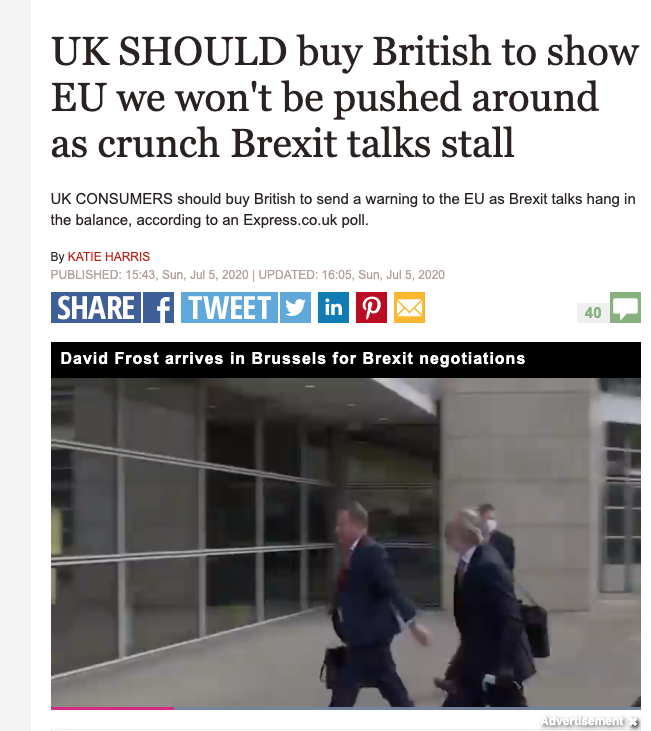
So, what can patriotic Europe-hating Brits pick up at Sainsbury’s to PUNISH those uppity frogs and krauts? Not a lot. Of the U.K.’s Top 10 exports, there’s only one consumer-facing branded consumable – spirits. Which is pretty funny because that would be Scotch whisky and we know how the Scots feel about Brexit.
Diamonds and cars are also on the list, but those are probably not what most Brits think of as a impulse buys. Otherwise, it’s petroleum (again from Scotland) and pharmaceuticals.
Bottom line? The 2019 GDP of the U.K. totaled $2.3 trillion. The 27 nations of the EU totaled about $20 trillion. So this is a little like a jockey picking a fight with Muhammad Ali.
• The Conservative Party is – in theory – a pro-business party. But Johnson, May et al have gone out of their way to ignore the warnings from CEOs and business owners of what a no-deal Brexit will do the the British economy following the contraction caused by the coronavirus.
The Financial Times has a post about a letter from business leaders marking the deadline for an extension. The post quotes Jürgen Maier, former chief executive of Siemens UK, as saying, “This is not a call to reopen old divisions about remaining or leaving. The government must now deliver for us all, and on their promise to get a good deal, not a bad deal, and definitely not a no-deal.”
We’ve always suspected the most rabid Brexiteers know perfectly well what’s coming … they just believe all the lost jobs, shortages, rising prices and the overall decline in quality of life is worth it to be free of the unbearable tyranny of Brussels.
• A United Kingdom? Hardly. There’s nothing like the Johnson government’s failed pandemic policy on top of Brexit to embolden Welsh and Scottish rebels. Wales only voted for Brexit because of the number of elderly English retirees there, and more than 60 percent of Scots voted Remain.
In Scotland, where an independence referendum failed dismally in 2014, the secession movement has been reenergized by multiple failures including Johnson’s chaotic COVID-19 approach and Westminster determining Scottish energy policy.
The Scottish nationalist think tank Common Weal states “the failure of Scotland to capture anything like a meaningful proportion of the manufacturing associated with the renewable energy sector is nothing short of a national scandal.”
Even the conservative Financial Times concedes First Minister Nicola Sturgeon has eclipsed Boris Johnson:
A YouGov survey at the beginning of May found 74 per cent of Scots believed the devolved Scottish National party government was doing a good job, including 70 per cent of Labour and Conservative voters. When it comes to the UK administration, it was a different story: while 71 per cent of Scots had confidence in Ms Sturgeon’s decisions, just 40 per cent said that of prime minister Boris Johnson.
In Wales, Plaid Cymru leaders advocate an independence referendum by 2030. Should Brexit prove as economically damaging as predicted on top of the economic damage done by coronavirus, voters in Wales and Scotland might start wondering what they have to lose.
• Bloomberg has the most detailed and depressing look at the havoc a no-deal Brexit will wreak in the United Kingdom starting with a lot of auto-industry jobs going bye-bye. Same with aviation. British consumers will see food prices rise dramatically because 80 percent food imported into the UK comes from the EU.
Of course, goods going the other way would face tariffs. And this blew our minds:
The U.K.’s farming industry sells about two-thirds of exports to the EU, which would be subject to steep tariffs under a no-deal Brexit. If Europeans stop buying, that will flood the UK with the surplus and prices will plummet.
“A no-deal will be devastating,” the post quotes Ellie Phipps, policy officer at the National Sheep Association, as saying. “We need an export market.”
That’s just the beginning. No more foreign workers to pick the crops or take the low-paying healthcare jobs. The UK will become less attractive to foreign scientist and researchers. Of course, there are the known unknowns, like how the Northern Ireland customs checks will work. But scariest of all are the unknown unknowns no one ever anticipated that turn out to be giant problems no one has a clue how to fix.
• On Monday, 10 June, Cabinet Office Minister Penny Mordaunt said extending talks with the European Union “serve no useful purpose” and was a “crazy” idea. But even conservatives in Northern Ireland are worried that a no-deal Brexit on top of a pandemic would be catastrophic for the United Kingdom’s economy, already predicted to contract by as much as 15 percent.
EU officials say that if there is no Brexit transition extension, a trade deal has to happen by 31 October for there be sufficient time for it to be ratified by all 27 EU member states. But we’ll know in three weeks – the deadline to extend the transition period – whether everything including trade and immigration rules reset to some sort of default, followed by years of renegotiation.
• With a no-deal Brexit almost a certainty, the New York Times has a deep dig into mindsets on both sides of The Channel. The Brits say the COVID-19 pandemic is the bigger shock, so does an agreement with the European Union even make sense anymore? The pandemic will bring supply-chain jobs home, according to the conservatives. But without European trade, global companies will continue the exodus to the Continent, which will further diminish Britain’s economy.
Executives at automaker Nissan said this week that 10-percent post-Brexit tariffs would make manufacturing in the UK “unsustainable” and the company would close some operations. So, a no-deal Brexit promises to add to the global chaos wrought by the pandemic and political instability. And that big, beautiful trade deal with Trumpmerica that will make everyone forget Brexit? Well, we hope you like your chicken chlorinated.
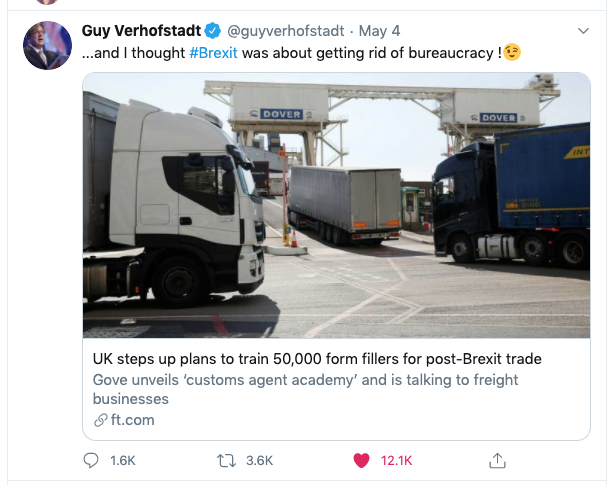
• From the beginning, Brexit was billed as a way for the UK to escape the onerous burden of EU bureaucracy and rigid rules holding England back. But as Johnson & Co. move to a no-deal final exit, British officials racing to recruit and train 50,000 customs agents who’ll be needed as the UK revives port-of-entry checks, which will generate an estimated 200 million-plus forms.
Needless to say, EU officials seized the moment to needle Brexiteers.
• Speaking of customs, Ireland is still a major sticking point between the EU and the UK. EU officials claim they have a right to be present to impose regulation and taxes at the customs checks on the Northern Ireland/Republic of Ireland border, the customs checks Boris says will never happen.
Meanwhile, officials in the republic are asking for some clarity about British goods coming in from Northern Ireland. Theoretically, there will be new customs controls on goods Northern Ireland from the rest of the UK in order to avoid checks on the border between Northern Ireland and the republic. A truck full of goods headed to a supermarket in Northern Ireland could include added expenses up to 100,000 pounds if the situation doesn’t get sorted, according to trucking industry studies.
Confused? We are, too.
• What does Stanley Johnson know that we don’t? The prime minister’s dad is applied for French citizenship, according to a new book by Stanley’s daughter – and Boris’s sister – Rachel.
We suspect he knows his son has no intentions of reaching a trade deal with the European Union and is getting out while the getting’s good. A deal is becoming more unlikely with every passing day thought the EU’s 69-year-old chief negotiator, Michel Barnier, survived coronavirus as did chief British negotiator David Frost and the prime minister himself.
Talks have never started, but that hasn’t stopped Boris Johnson from reiterating that he will never extend the 31 December deadline. So, on top of a pandemic, it’s likely Britain will have to start on 1 January negotiating individual treaties and trade agreements.
• If there is one issue that can rile up Brits, anger Americans and horrify the EU, it’s chlorinated chicken. The Americans think you can just dip a chicken carcass in chlorine and it’ll be fine. As you might suspect, the EU has these things called “standards” based on Hazard Analysis Critical Control Points, developed by NASA to keep astronauts from getting food poisoning in space. HACCP requires biological and chemical controls at each stage of production, according to a lengthy, detailed post in Wired, “How chlorinated chicken ate Britain.”
The Trump Administration is pretty firm that Brits will by-God learn to eat American chicken and like it or they can forget a trade deal. But Brits across the political spectrum are united against what they see as lowering food-safety standards.
As one American think tank researcher states in the Wired post:
America under Trump is seen as a Wild West by Europeans, and they worry that a trade deal would open the UK up to some sort of undue American influence. It’s a gut reaction – if it’s happening in America under Trump’s administration it must be bad.
• For more than three and a half years not, no one has really had a solution for the Irish border.
Under the Withdrawal Agreement Boris Johnson struck in in October, Northern Ireland will continue to follow European rules on agricultural and manufactured goods while the rest of the United Kingdom will stop following these rules on 31 December. Which means officials in NI will continue to enforce EU customs at ports. Obviously, if the UK leaves the EU without a trade deal, British goods entering Northern Ireland will have to go through customs even though they’re both part of the United Kingdom.
Though no one wants these checkpoints or the paperwork and duties they’ll entail, the rules are the rules. Now, the issue becomes, where to put them? On the border between the Republic of Ireland and Northern Ireland, or in Northern Ireland’s ports and airports?
• In feel-good terms, Brexit is a winner: “Free at last, free at last. Good God almighty, free at last.” In rational economic terms, leaving the European Union, the worlds largest, most friction-free trade bloc, makes absolutely no sense at all.
Peter S. Goodman, a New York Times reporter, visited some of England’s most successful companies and found that all thrive by selling products to customers in the EU, especially companies making high-spec auto parts and accessories. All that could end – or at least get a lot less profitable – should the Boris Johnson walk away from trade negotiations with no deal and Britain refuse to honor EU trade regs.
One of the most telling sections in “Post-Brexit, Britain Is Going Its Own Way. That Way Looks Expensive.” is when executives at an auto-parts manufacturer parrot the Brexit line, “Going forward, we should have our own destiny.”
When pressed to provide an example of an EU regulation that impedes their business, both men came up empty: “I can’t think of any,” one executive answers.
• Traveling on a British passport is about to get complicated. GOV.UK just issued a warning about passport rule changes after 31 December. In the pre-Brexit days, a British traveler had until the expiry date on their passport to go wherever in the European Union he/she wished. After 31 January, British passport holders must have at least six months of validity. And weirdly, even that might not get you into certain countries.
From the post:
If you renewed your current passport before the previous one expired, extra months may have been added to its expiry date. Any extra months on your passport over 10 years may not count towards the 6 months needed.
The rule applies to almost every country in Europe except Ireland, which falls under the Common Travel Agreement.
• More real-world implications of Brexit are starting to fall into place. Michael Gove confirmed on 11 February that customs border checks will be the new reality after 31 January. Unfortunately, Gove and other Brexiteers had campaigned on the certainty the UK would maintain a frictionless free flow of trade across borders after Brexit and that new technologies would magically scan freight.
British Retail Consortium officials immediately pointed out that no infrastructure – magical or otherwise – is in place and it’s unlikely it can be installed in the brief time left.
So, like everything from the 350 million pounds for the National Health Service per week claim on the side of the red bus to “the easiest negotiations in history,” the frictionless border trade promise turns out to be more rainbows and unicorns.
• N26 is shuttering operations in the United Kingdom. The Berlin-based digital bank will no longer have “passporting” rights to operate in the UK. Apparently N26 executives don’t think it’s worth the trouble of creating a British subsidiary. And this is emblematic of the choices facing financial institutions based outside the UK.
On 11 February, then-Chancellor of the Exchequer Sajid Javid and EU negotiator Michel Barnier had a little dustup over “equivalence,” the alignment of financial rules between the UK and EU. Javid drug out the old “we won’t be rule-takers” line, stating the EU should have access to EU financial markets while making up its own regulations.
Barnier replied that any treaties will have to be tied to EU rules. Sticky wicket, that.
Quartz has a fair-and-balanced post noting that while only a few thousand of the tens of thousands of people working in London’s financial hubs have left for The Continent, Wall Street banks could be forced to choose between the UK (market size 67 million) and the EU (market size 512 million) if UK/EU negotiations break down.


